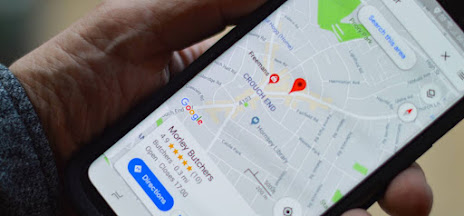Featured
- Get link
- X
- Other Apps
Applications of Mobile Device Localization Technology
Mobile device localization technology is the ability to determine the physical location of a mobile device. This technology is used in a wide variety of requests, including:
Navigation: Mobile device localization is used in navigation
apps to help users find their way around. These apps use a variety of
technologies, including GPS, Wi-Fi, and cell towers, to determine the user's
location and provide directions.
Location-based services: Mobile device localization is also
used in location-based services, such as weather apps, restaurant guides, and
retail apps. These apps use the user's location to provide relevant information,
such as the current weather conditions, nearby restaurants, or the latest sales
at a local store.
Indoor navigation: Mobile device localization is also used
for indoor navigation. This is especially useful in large buildings, such as
airports, shopping malls, and hospitals. Indoor navigation apps use a variety
of technologies, including Wi-Fi, Bluetooth, and ultrasonic signals, to
determine the user's location and provide directions.
Crowdsourcing: Mobile device localization is also used for
crowdsourcing applications. These apps use the location data from a large
number of mobile devices to track the movement of people or objects. This data
can be used for a variety of purposes, such as traffic congestion monitoring,
disaster management, and marketing research.
Mobile device localization technology is a powerful tool
that can be used in a variety of applications. As the technology continues to
develop, we can expect to see even additional innovative and creative uses for
mobile device localization in the future.
Here are some additional applications of mobile device
localization technology:
Marketing: Mobile device localization can be used to target
ads to users founded on their location. For example, a retailer could use
mobile device localization to show ads for nearby stores to users who are
within a certain distance.
Fraud detection: Mobile device localization can be used to
detect fraudulent activity. For example, a bank could use mobile device
localization to track the location of a user's phone and flag any suspicious
activity, such as a user making a large purchase in a different city.
Safety and security: Mobile device localization can be used
to improve safety and security. For example, a city could use mobile device
localization to track the location of emergency responders and send them to the
scene of an incident more quickly.
Mobile device localization technology is a powerful tool
that can be used to recover our lives in a variety of ways. As the technology lasts
to develop, we can expect to see even additional innovative and creative uses
for mobile device localization in the future.
What is LBS technology in mobile phones?
LBS stands for Location-based services. It is a technology
that allows mobile phones to determine their location. This can be done using a
variety of technologies, including GPS, Wi-Fi, and cell towers.
LBS technology is used in a variety of mobile phone
applications, including:
Location-based services: Mobile phone location-based
services use LBS technology to provide relevant information to users based on
their location. For example, a weather app might use LBS technology to show the
user the current weather conditions in their area.
Indoor navigation: Mobile phone indoor navigation apps use
LBS technology to help users find their way around large buildings, such as
airports, shopping malls, and hospitals. These apps use Wi-Fi or Bluetooth to
determine the user's location and provide directions.
Crowdsourcing: Mobile phone crowdsourcing apps use LBS
technology to track the movement of people or objects. This data can be used
for a variety of purposes, such as traffic congestion monitoring, disaster
management, and marketing research.
LBS technology is a powerful tool that can be used in a
variety of mobile phone applications. As the technology continues to develop,
we can expect to see smooth additional innovative and creative uses for LBS in
the future.
Here are some of the benefits of using LBS technology in
mobile phones:
Convenience: LBS technology can make it easier for users to
find the information they need, such as directions, weather, or nearby
businesses.
Personalization: LBS technology can be used to personalize
the user experience, such as by showing ads for nearby businesses or providing
recommendations for restaurants.
Safety: LBS technology can be used to improve safety, such
as by tracking the location of children or elderly people.
However, there are also some potential risks associated
with using LBS technology in mobile phones:
Privacy: LBS technology can collect a lot of data about the
user's location, which could be used to track their movements or target them
with ads.
Security: LBS technology could be used to track the user's
location without their knowledge or consent.
Accuracy: LBS technology is not always accurate, which could
lead to problems, such as providing incorrect directions or showing ads for
businesses that are not nearby.
Overall, LBS technology is a powerful tool that can be used
to improve the user experience of mobile phones. However, it is important to be
aware of the potential risks associated with using this technology.
- Get link
- X
- Other Apps
Popular Posts
Twisting, Flexible Crystals Key to Advanced New Solar Cells
- Get link
- X
- Other Apps
Why Is Innovation In The Fashion Industry Crucial?
- Get link
- X
- Other Apps


Comments
Post a Comment